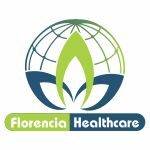The global fight against cancer is intensifying, and India has emerged as a key player in providing affordable and effective anticancer medicines. As the world seeks accessible healthcare solutions, Indian anticancer drug manufacturers and exporters are increasingly contributing to global oncology treatment outcomes. This article explores the global impact of Indian anticancer drug manufacturers and exporters, highlighting their contributions, strengths, and future growth potential.
Global Impact of Indian Anticancer Drugs Manufacturers & Exporters
Cancer is one of the leading causes of death globally. With over 10 million deaths annually, the demand for cost-effective and quality cancer treatment is growing exponentially. Indian pharmaceutical companies, particularly those focused on oncology, have risen to this challenge. They are not only supplying high-quality generics but also exporting them to over 150 countries, making cancer treatment more accessible worldwide.
Florencia Healthcare is one such company at the forefront of this transformation, committed to manufacturing and exporting high-quality anticancer medicines to various parts of the globe.
Why India is Leading in Anticancer Drug Manufacturing
- Affordable Production: India has one of the lowest production costs in the world, without compromising on quality. Indian companies leverage cost-effective manufacturing practices, advanced technologies, and economies of scale.
- Strong R&D Infrastructure: Indian pharmaceutical companies invest heavily in research and development. Institutions like Florencia Healthcare develop innovative formulations that comply with international standards.
- Regulatory Compliance: Indian manufacturers meet stringent global regulatory requirements, including WHO-GMP, US FDA, and EU GMP certifications, making their products acceptable in major markets.
- Global Demand for Generics: With patents expiring on many blockbuster drugs, Indian companies are quick to introduce generic versions, thus addressing global supply gaps.
Indian Anticancer Drugs Export: Global Reach
Indian anticancer medicines are exported to:
- Africa: Countries like Nigeria, Kenya, and South Africa rely heavily on Indian cancer drugs due to affordability and availability.
- Southeast Asia: Nations such as the Philippines, Vietnam, and Indonesia import Indian anticancer products to improve access to treatment.
- Middle East & Latin America: With increasing healthcare spending, these regions are turning to India for reliable oncology drugs.
- CIS and Eastern Europe: Countries like Ukraine and Kazakhstan benefit from India’s competitive pricing and robust supply chain.
Florencia Healthcare exports a wide range of anticancer injections and oral drugs globally, ensuring timely delivery and quality assurance.
Key Anticancer Products from Indian Manufacturers
Indian pharmaceutical companies manufacture a broad range of oncology products, including:
- Cytotoxic Drugs: Paclitaxel, Docetaxel, Doxorubicin
- Targeted Therapies: Imatinib, Erlotinib, Lapatinib
- Hormonal Agents: Tamoxifen, Letrozole
- Supportive Care Medicines: Filgrastim, Zoledronic Acid
Florencia Healthcare’s oncology division under the brand name Florencia Healthcare includes world-class formulations like:
- CABAFLO (Cabazitaxel Injection)
- BULSUL-FH (Busulphan Injection)
- FRACZOL-4 (Zoledronic Acid Injection)
- IBANOL-FH (Ibandronic Acid Injection)
Each product undergoes rigorous quality checks and meets international safety standards.
Role in Making Cancer Treatment Affordable Globally
High costs of cancer care create significant challenges in low and middle-income countries. Indian exporters bridge this gap by offering:
- Economical Pricing
- Bulk Supply Chains
- Generic Substitutes of Patented Drugs
- Local Distribution Partnerships
Florencia Healthcare’s global partnerships help governments and healthcare providers reduce treatment costs without sacrificing quality.
Adherence to International Quality Standards
To ensure safety and efficacy, Indian manufacturers:
- Follow WHO-GMP certified production practices
- Maintain strict quality control and assurance protocols
- Invest in state-of-the-art infrastructure and automated facilities
Florencia Healthcare operates three WHO-GMP certified plants and has built a reputation for delivering premium oncology solutions.
Innovations & Technological Advancements
Indian manufacturers are moving beyond generics into novel drug delivery systems and biosimilars. Innovations include:
- Liposomal drug formulations
- Extended-release injections
- Nanotechnology-based drug delivery
Florencia Healthcare is focused on advanced oncology therapies that improve patient compliance and clinical outcomes.
India’s Contribution During the Global Health Crisis
During the COVID-19 pandemic, India ensured the uninterrupted supply of essential cancer medicines across borders, proving its reliability. Indian exporters helped mitigate drug shortages in many countries.
Florencia Healthcare played a crucial role by prioritizing urgent orders for life-saving oncology medicines.
Challenges Faced by Indian Exporters
Despite success, challenges persist:
- Trade barriers and import restrictions in some countries
- Intellectual property issues
- Regulatory complexities in high-income nations
However, proactive measures like better IP compliance, regulatory harmonization, and stronger bilateral ties are addressing these hurdles.
Future Outlook: What Lies Ahead
- Biosimilars: A growing area where India is poised to lead
- AI in Pharma: AI-driven R&D is revolutionizing formulation development
- Expansion into New Markets: Focus on Latin America, CIS countries, and Africa
- Green Manufacturing: Eco-friendly production techniques
Florencia Healthcare is aligned with these trends, working towards expanding its oncology product line and global outreach.
More Information
Link Suggestions
- WHO on Cancer
- Pharmaceutical Export Promotion Council of India
- Indian Drug Manufacturers’ Association
Conclusion
Indian anticancer drug manufacturers and exporters are reshaping global cancer care by making it more accessible, affordable, and effective. With a strong regulatory backbone, innovative capabilities, and a commitment to quality, companies like Florencia Healthcare are setting benchmarks in the global pharmaceutical landscape. As the world continues to battle the cancer epidemic, India’s role as a pharmaceutical powerhouse will only grow stronger.
For partnerships, distribution, or bulk inquiries, contact Florencia Healthcare today.
FAQs: Global Impact of Indian Anticancer Drug Exporters
1. Why are Indian anticancer drugs in high global demand?
Indian anticancer drugs offer high quality at low cost, making them vital for countries with limited healthcare budgets.
2. What regulatory standards do Indian manufacturers follow?
Indian companies like Florencia Healthcare follow WHO-GMP, US FDA, and EU GMP guidelines.
3. Which countries import Indian anticancer medicines?
Over 150 countries including those in Africa, Asia, Latin America, and Eastern Europe import Indian cancer medicines.
4. What are biosimilars, and is India manufacturing them?
Biosimilars are biologic medical products similar to already approved drugs. Yes, India is a growing hub for biosimilar development.
5. How do Indian exporters help reduce global cancer treatment costs?
They provide generic alternatives and bulk supply options at affordable rates.
6. What types of anticancer drugs are exported from India?
Cytotoxic drugs, targeted therapies, hormonal agents, and supportive care medications.
7. What makes Florencia Healthcare a trusted exporter?
Florencia offers WHO-GMP certified products, global supply chain capabilities, and innovative oncology formulations.
8. Are Indian anticancer drugs safe and effective?
Yes, they go through rigorous quality control and are clinically validated for efficacy and safety.
9. How is the Indian government supporting pharmaceutical exports?
Through incentives, export subsidies, and regulatory simplification by organizations like Pharmexcil.
10. What is the future of Indian anticancer drug exports?
Expanding into biosimilars, personalized medicine, and greater presence in emerging global markets.

